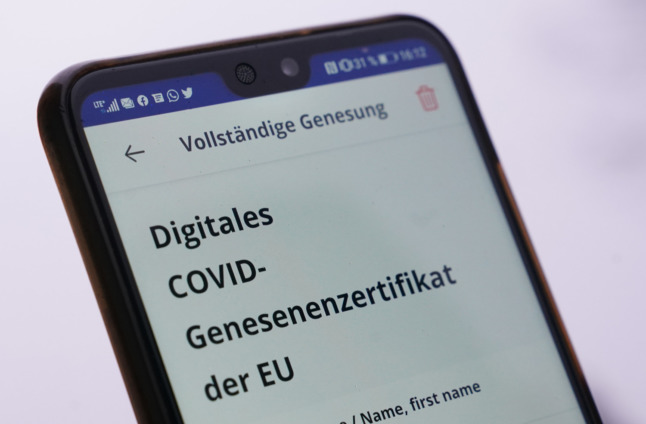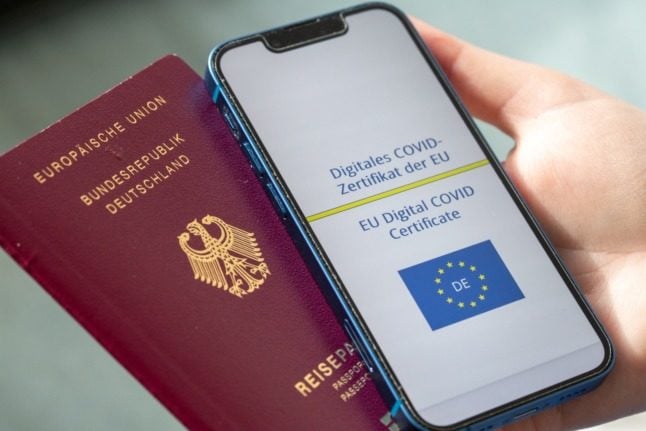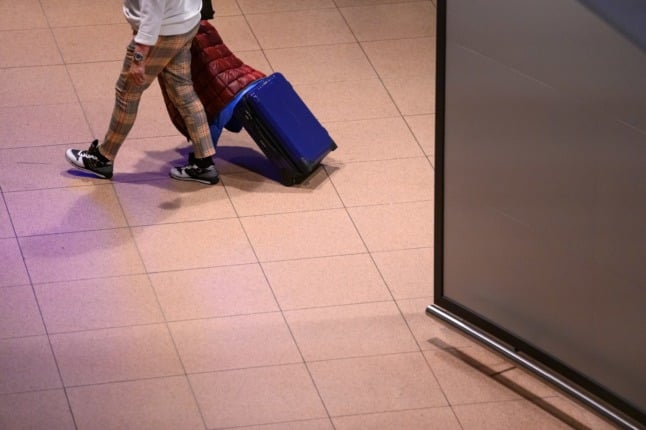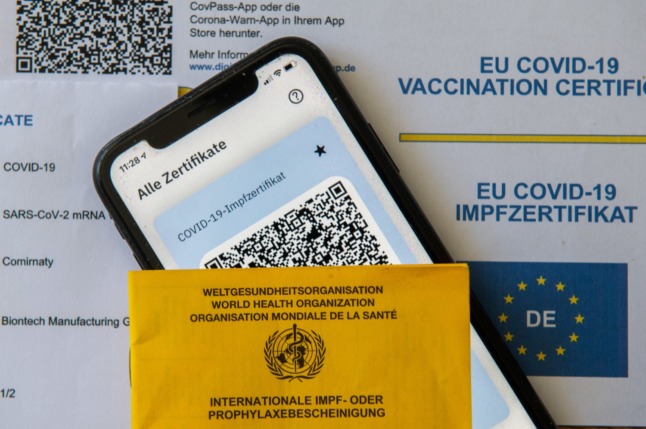On February 22nd, the European Commission announced that EU Member States will be able to issue recovery certificates based on a positive rapid antigen test result, with immediate effect.
Previously, it had only been possible to obtain a recovered certificate following a positive result from a PCR test but, due to overstretched PCR testing capacities throughout the EU, the Commission has now decided to downgrade the requirement.
READ ALSO: EU countries agree to simplify travel rules with Covid certificates
Citizens will be able to obtain EU-wide proof of having overcome a Covid infection after a positive rapid test. However, this test must have been carried out by appropriately qualified personnel and be listed on the common EU list of rapid antigen tests for Covid-19. According to the announcement, EU countries can also issue these certificates retroactively on the basis of tests carried out from October 1st 2021.
When will it be possible to get a recovered certificate on the basis of a rapid test in Germany?
It is unclear when the new EU rule for recovered certificates based on rapid tests will be implemented in Germany.
According to the EU Commission’s announcement, countries like Germany can issue certificates of recovery based on rapid antigen tests as soon as they are ready. But practically speaking, it is most likely that the certificates will firstly be obtainable once the German Covid-19 Protection Measures Exemption Ordinance has been adapted.
READ ALSO: How German pharmacies are extending the ‘recovery’ status for vaccinated people
At the time of writing, the information on the new EU decision has not yet been included on the Health Ministry website or on the Robert Koch Institute website – these still state that nucleic acid detection, i.e. PCR or NAT testing, is required.
The Local also asked the Health Ministry for clarification on when the rule will be applied in Germany, but a spokesperson told us: “the issuing of EU digital certificates of recovery based on rapid antigen tests is optional for the member states. In principle, it is to be welcomed that the EU Commission is reacting flexibly to the lack of PCR tests. In Germany, however, there are enough PCR tests to be able to check more precisely whether someone is infected.”





 Please whitelist us to continue reading.
Please whitelist us to continue reading.
Member comments